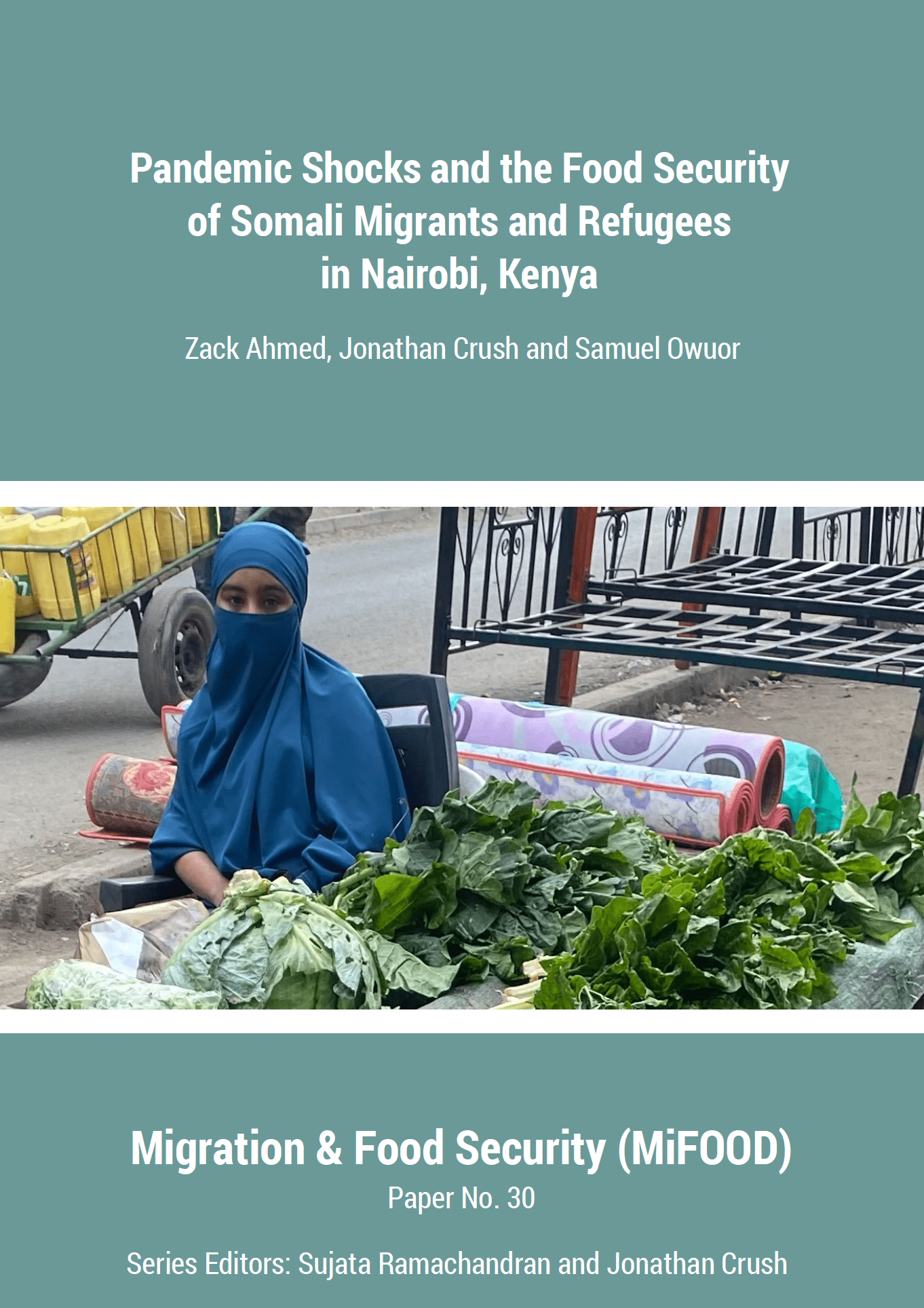The COVID-19 pandemic triggered severe shocks to food security for marginalized populations in urban areas. Somali migrants and refugees in Nairobi’s Eastleigh neighbourhood faced disproportionate impacts due to strict containment measures, disrupted food supply chains, and the shutdown of informal markets. These disruptions exacerbated existing socio-economic inequities, leading to heightened food insecurity. This paper examines the multi-dimensional effects of the pandemic on the food security of Somali migrants and refugees, focusing on their access to informal food networks and the broader socio-economic factors influencing their livelihoods. Utilizing a household survey and in-depth interviews conducted in August 2022, the study reveals the compounded impacts of income loss, remittance disruptions, and restricted mobility on food access and consumption. By situating these findings within the context of South-South migration and urban food security, this research offers critical insights into the intersectional vulnerabilities exposed by the pandemic. The study highlights the need for resilient, inclusive food security policies and governance frameworks that specifically address the vulnerabilities of urban migrants in times of global crisis.

